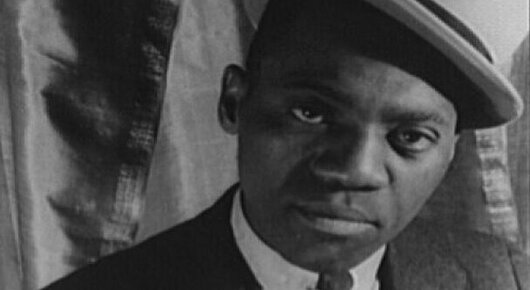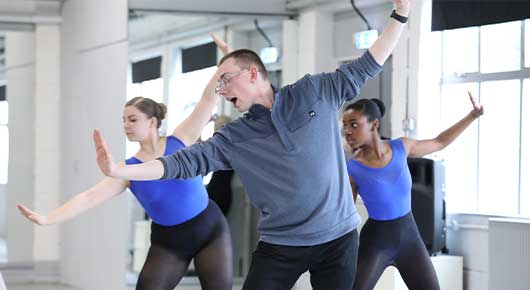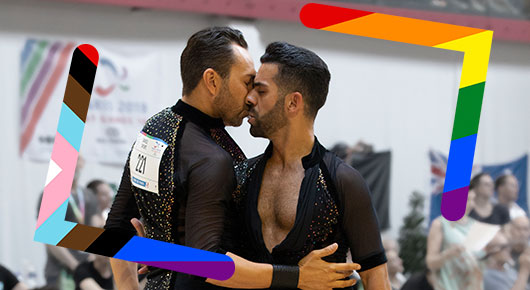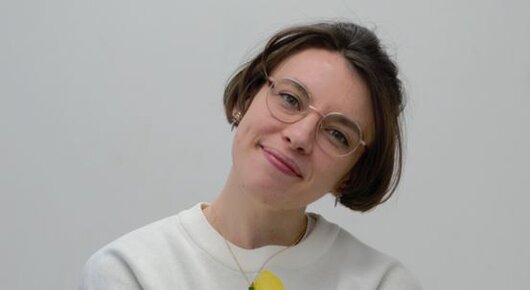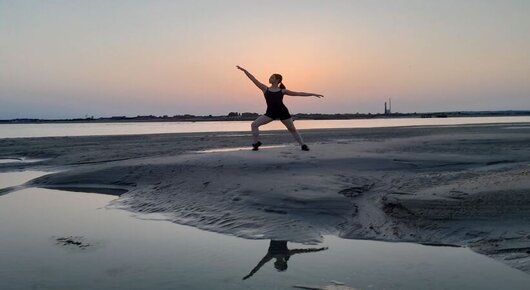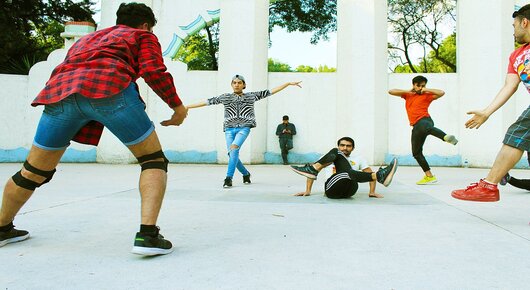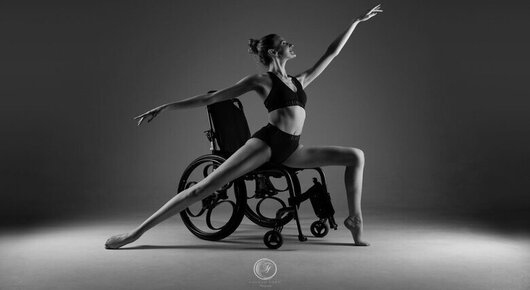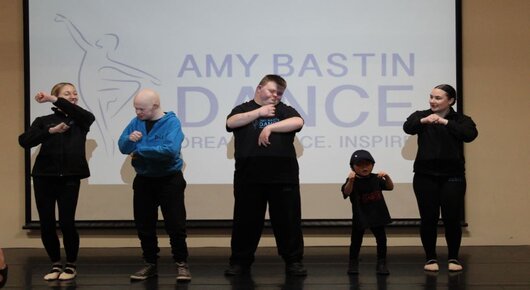13 July 2021
The first in our series of Talking Dance events, we hosted Talking Dance: Improving Racial Equity on the 29 June. Made possible by the society's grant from the Cultural Recovery Fund, the event brought together leading organisations to discuss the roadblocks to achieving diversity in dance education and training and how these can be dismantled at every level of dance teaching, creating a vision for a future of inclusive and diverse dance.
We partnered with bbodance, International Dance Teachers Association (IDTA), the TIRED Movement and Royal Academy of Dance (RAD), beginning the process of of consulting with dancers, teachers and staff who have experienced racial discrimination to better understand the barriers to accessing independent dance classes.
Introduced with visual descriptions, our CEO, Ginny Brown introduced Kenneth Olumuyiwa Tharp CBE, FRSA. The event was led by Kenneth, with guest speakers including Sharon Watson (MBE DL, CEO/Principal of the Northern School of Contemporary Dance), Karina H Maynard (Director for Representation & Social Impact & Board Member at Urdang), Christopher Hampson (CEO/Artistic Director of the Scottish Ballet) and a number of special guest panellists.
Each speaker debated issues ranging from how to build sector knowledge to diverse role models, the need for syllabi to reflect and celebrate all cultures to how to overcome financial and cultural barriers to access dance training.
Karina H Maynard shared four aspects that she thought could help us with our approach to improve racial equity: Identity, self-reflection, learning and transformation. She spoke about decolonisation, saying “Decolonisation often seems to suggest to many people the notion that we want to take something away, like ‘decluttering'” “but most conversations I have are actually about amplifying history, adding bits that have not been represented.”
Christopher Hampson, CEO / Artistic Director of Scottish Ballet introduced his segment with the title of a 2019 article entitled ‘Does ballet have a race problem?’ for The Guardian. “The short answer is yes.” said Christopher, “Ballet is an art form and art forms reflect society. Systemic racism within the art form has existed for centuries”. Christopher spoke about the vital actions he had put in place as CEO in order to make Ballet a more diverse and inclusive art form. After noting actions that included changes to recruitment, costuming, hairstyles and engagement with communities, Chris said “We want to make sure we don’t just talk, and we act.”
“An open door at the front of a company relies on there being a line of open doors to young people when ballet crosses their path. That there is an ability for young people to access ballet in all its forms. Once access is gained, there is support and a safe space and a pipeline that can be seen towards a ballet company.”
Christopher Hampson, CEO / Artistic Director of Scottish Ballet
Dr Sharon Watson MBE, DL CEO and Principal of the Northern School of Contemporary Dance spoke about ‘an uncomfortable space’, the microaggressions and red tape around the subject of racism in the workplace and how we should welcome conversation and discuss race issues openly, honestly, without judgement. “Racism is something many of us live with every day and often in a space which isn’t visible. When you do call it out, it’s seen as a problem, as disruptive, it’s deflected. The majority of people feel uncomfortable when issues are raised. I have always experienced navigating this uncomfortable space”.
Stacey Green, co-founder of Freedom Foundation CIC and the TIRED Movement (Trying to Improve Racial Equality in the Dance Industry), was a prominent speaker throughout the morning. “It can’t just be one organisation making these changes. We have to work together and it starts with education and communication” (Find out more about the TIRED Movement at www.tiredmovement.com)
The symposium concluded with a panel discussion, with panel speakers Stacey Green, Emmanuel Kojo, Shevelle Dynott and Sujata Banajaree. Personal perspectives and experiences were shared. “If we are talking about inclusivity, it has to be about all dance forms.” Sujata said. Emmanuel advised organisations to “Hire people who are right to do the job that is needed.” Shevelle talked through his own experiences as a dancer, saying “It’s important that you show the young generation that they are able to do whatever they want to do.”
Words of advice
When asked to give one piece of advice to those watching, the panellists each gave powerful statements:
Emmanuel: “It always comes down to the language that is used to help [students] along their journey. A word has so much power over you. As teachers, think about the language we use towards each other and our students. It’s not okay to simply experience injustice.”
Sujata: “There is so much to do. If you’re a gatekeeper, you’re a gate opener. It’s an ongoing thing, being part of this awareness and discussion. There is no harm directing our students to read Britain’s colonial history, [to understand] why Britain is so diverse and why we should celebrate.”
Shevelle: “You’re going to have a lot of children coming into your dance studio. Children are blank canvases”. “Whatever you’ve been through could be very different to what they’re going through. Have that sensitivity towards everybody in the room. You’re learning from them as much as they’re learning from you. The minute you forget that, that’s where [things] go wrong.”
Stacey: “If you’re in a position to educate the next generation, you need to educate yourselves. When we stop learning, we should stop teaching. We are never too old to keep learning.”
Watch the highlights of the morning below.
